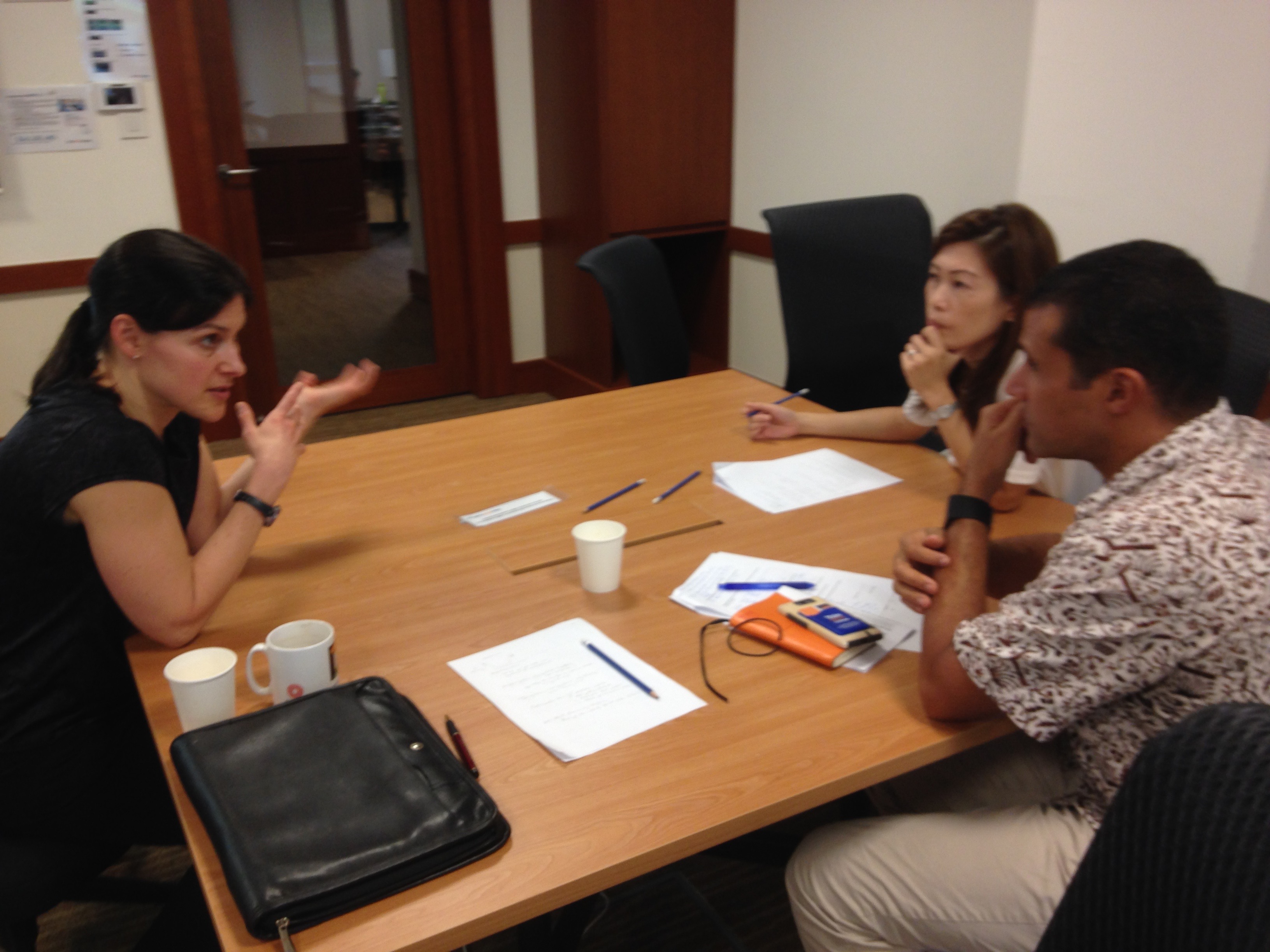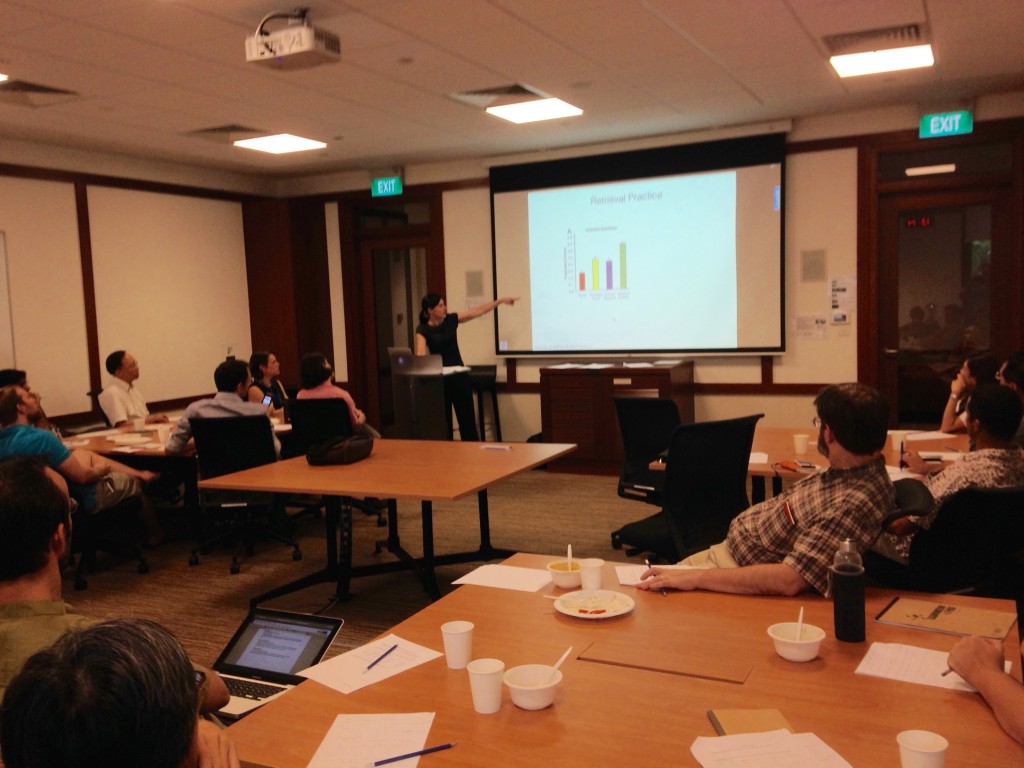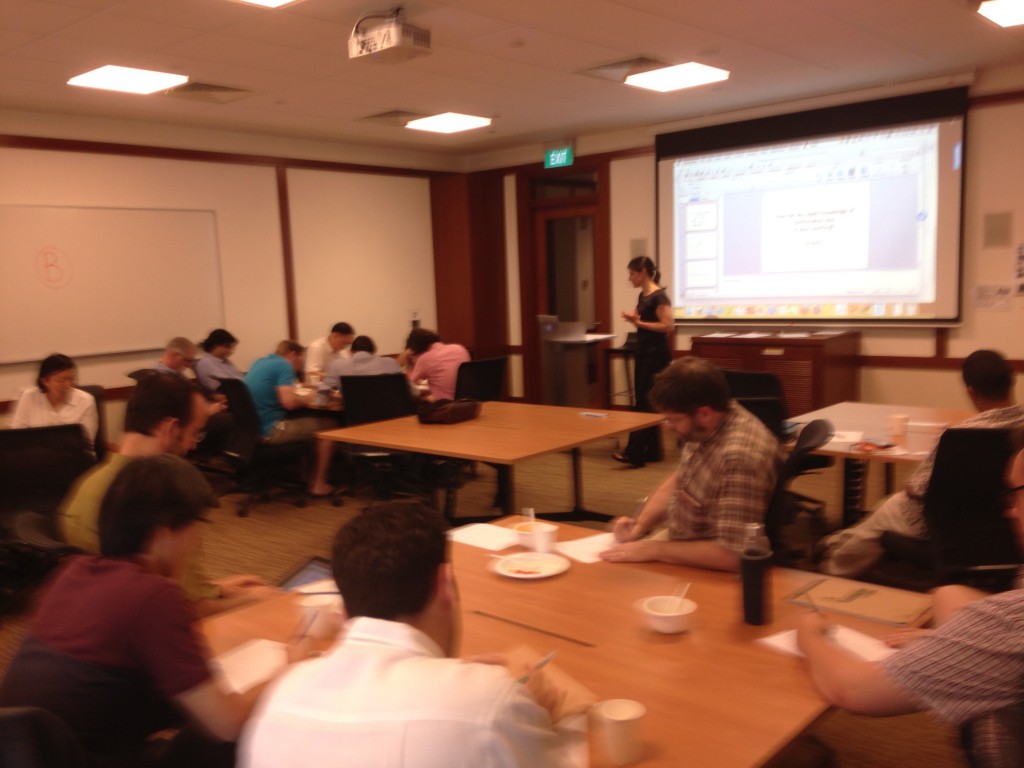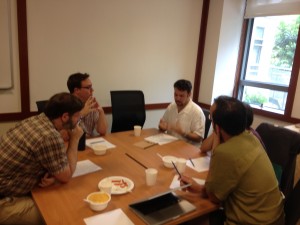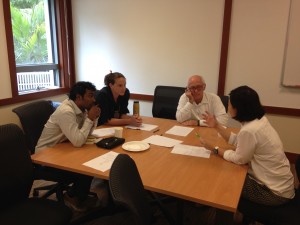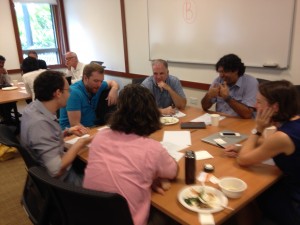During the Feb 29-March 5 visit Jenny Frederick provided an amazing workshop on how people learn at Yale-NUS College. The workshop, entitled “Teaching to Prioritize Learning” included a wonderful in situ experiment in learning, where the group was divided into two, and asked to perform a series of tasks as if in a classroom setting. The two groups were given different handouts, however, and Jenny masterfully demonstrated how the different handouts could either enhance learning or block it. Jenny was able to show how memory can be bolstered by materials that help organize the knowledge by grouping facts together into categories. Those of our colleagues who had such handouts vastly outperformed the “control” group who were left floundering. This message was that as teachers we owe it to our students to scaffold what we do with multiple aids to their learning; and to infuse those materials we hand out with systematic and conceptual groupings that help them process the information more effectively.
Within Jenny’s talk was also a graph of how memory can be interefered with by lack of attention or just saturation from too much information. This is a part of the growing both of research that documents how lecturing will not work after a relatively short period (10-15 minutes) after which the mind is incapable of processing much of the information. Jenny advocates not only bundling concepts or facts in logical ways, but infographics and other diagrams that can aid learning.
Another point that she made was that students often have preconceptions that need to be addressed carefully in teaching. These preconceptions can lead to “confirmation bias” in which students look for patterns consistent with preconceived ideas. It is important to enable students to test patterns and evidence for themselves and to discuss what they find to help break these misconceptions whenever possible. The use of “retrieval practice” can also facilitate learning and has been shown to boost learning more than more elaborate study practices. This form of retrieval practice which uses tests that assess comprehension and requires students to make inferences also improved conceptual learning, according to a recent article by Karpicke and Blunt (2011) in an article published in Science.
Our Yale-NUS faculty really enjoyed the talk by Jenny, and were impressed to not only see some of the results of learning science put into practice, but to gather data themselves – as test subjects of a short experiment!
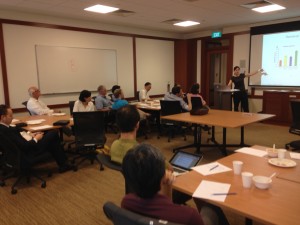
References
Karpicke, J.D., and Blunt, J.R., 2011, Retrieval Practice Produces More Learning than Elaborative Studying with Concept Mapping, Science, 331, p. 772.
Accessible from http://learninglab.psych.purdue.edu/downloads/2011_Karpicke_Blunt_Science.pdf
Teaching-to-prioritize-learning-Yale-NUS-Feb-2016 – Slides from Jenny’s talk
Teaching-to-prioritize-learning-Yale-NUS-Feb-2016 How-People-Learn_Activity-Handouts-Scoring-Sheet – Scoring sheet for workshop

